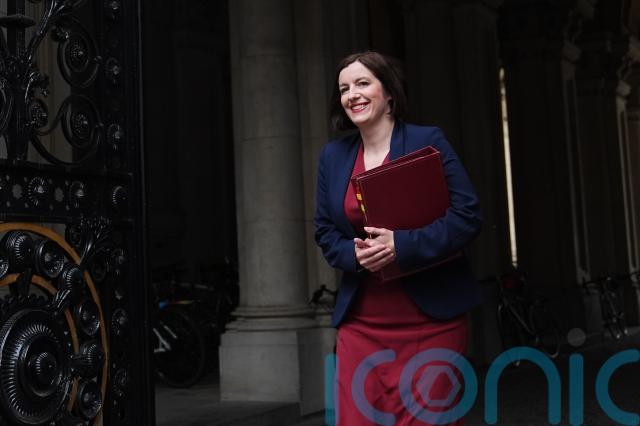
People who train to teach certain subjects next year will be able to access bursaries and scholarships worth up to £31,000 tax free, the Department for Education (DfE) has announced.
Bursaries and scholarships will continue to be available in 2026/27 for those who train to teach in subjects such as physics, chemistry, maths and computing as part of the Government’s efforts to tackle teacher shortages.
People who train to be teachers through further education routes will be able to access £31,000 for key Stem (science, technology, engineering and mathematics) shortage subjects, and £10,000 for training to teach English.

Those training in colleges will also be able to access £15,000 to train as a specialist in special educational needs and disabilities (Send).
The department will further offer schools up to £29,000 to cover the cost of training apprentices in maths, chemistry, physics and computing, and £20,000 to train apprentices in modern foreign languages.
This is the first time funding for the Postgraduate Teaching Apprenticeship will match teacher training incentives in all subjects, the DfE said.
The DfE has offered training bursaries to cover some or all of teacher training costs since 1986 for qualifying graduates. For example, those with a first class degree have been able to access more than £20,000 to train to teach chemistry, maths, physics or computing since 2014/15.
Education secretary Bridget Phillipson said the Government has already begun to see more teachers accepting training places.
“But there is more to do, and we need talented people with the passion and drive to inspire the next generation – working their magic, making school a place pupils want to be, boosting outcomes and transforming the lives of our young people,” she added.
Schools have been facing challenges for several years in both recruiting and retaining teachers – particularly in subjects such as physics and maths.
For 2024/25 the department recruited only 62% of the trainee teachers it aimed for for secondary subjects, though projections from the National Foundation for Educational Research (NFER) suggest this is likely to increase to 85% for 2025/26.
Pepe Di’Iasio, general secretary of the Association of School and College Leaders, welcomed the bursaries but said “it is hard to see how they will turn the tide of this crisis on their own”.
He said longstanding teacher recruitment and retention issues will only be solved with improvements in pay, action to address workload for teachers, and lowering Ofsted pressures.
The Institute of Physics has warned a quarter of secondary schools from a survey of 2,296 report having no specialist physics teachers.
Labour has pledged to get 6,500 additional teachers into classrooms by 2028/29, and has said more than 2,300 more teachers were recruited in the last year.
NFER education workforce lead Jack Worth said the latest announcement on bursaries “could go a long way towards helping the Government meet its pledge to recruit and retain 6,500 additional teachers.”
The DfE said there has been a 33% increase in people training to be physics teachers, and a 42% growth in those opting to study to teach computing.
For 2025/26, trainee teachers in chemistry, maths, physics and computing were able to access £29,000 bursaries.
There was also £26,000 available for those training in biology, design and technology, geography and languages, £10,000 in art, music and religious education, and £5,000 in English.
Trainees were also able to access £31,000 scholarships in Stem subjects for 2025/26.
“Inspirational teachers changed my life and change the lives of millions of children every day – this Government is determined that we have more brilliant teachers, in more schools, improving the life chances of more children and young people,” Ms Phillipson said.
Subscribe or register today to discover more from DonegalLive.ie
Buy the e-paper of the Donegal Democrat, Donegal People's Press, Donegal Post and Inish Times here for instant access to Donegal's premier news titles.
Keep up with the latest news from Donegal with our daily newsletter featuring the most important stories of the day delivered to your inbox every evening at 5pm.